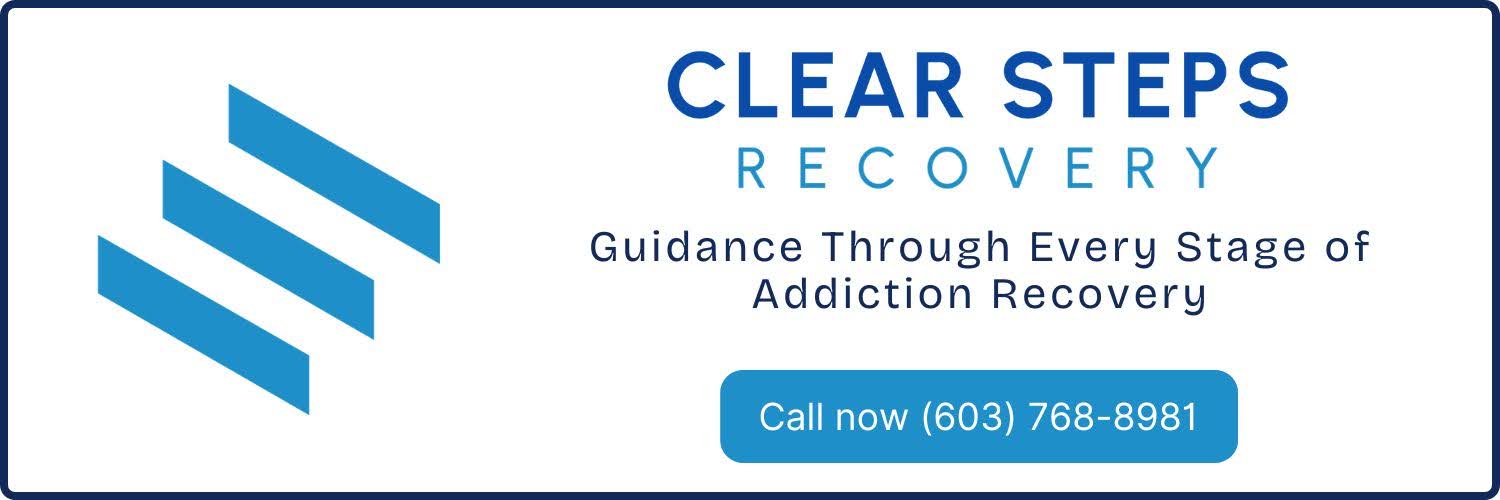Stages of Addiction Recovery: What To Expect in Each Step
September 24, 2025
Learn what happens during each stage of addiction recovery and how Day Treatment from Clear Steps Recovery supports lasting change.
For years, Jamie kept their struggles buried beneath a smile and a packed schedule. Friends noticed subtle changes — missed calls, forgotten plans, a clouded look in their eyes — but when asked, Jamie always had a reasonable explanation. They didn’t see a problem. Not yet.
It wasn’t until a quiet night alone, staring at the ceiling and feeling the weight of it all, that Jamie wondered, What if this isn’t normal anymore?
The path from that first flicker of doubt to sustained recovery is rarely a straight line. It unfolds in stages — sometimes slowly, sometimes with sudden clarity. Each step plays a crucial role in lasting healing.
In this article, we’ll walk through the stages a person may experience on their journey to recovery. You’ll learn what each phase looks like, how to recognize it in yourself or a loved one, and why support, like day treatment from Clear Steps Recovery, can make all the difference.
Table of Contents
- What Are the 5 Stages of Recovery?
- Why Understanding the 5 Stages of Addiction Recovery Matters
- Challenges During the Stages of Addiction Recovery
- How Does Professional Support Help People Navigate the Stages of Recovery From Addiction?
- Clear Steps Recovery: Support for Every Stage of Addiction Recovery
The five stages of recovery, based on the Transtheoretical Model of Change, outline the emotional and behavioral shifts a person goes through, from not recognizing a problem to maintaining long-term sobriety. Each stage requires different types of support and presents unique opportunities for growth and healing.
These stages — often referred to as the stages of change — help explain why recovery isn’t simply a matter of willpower. Instead, it’s a gradual process involving awareness, intention, action, and persistence. People may move back and forth between stages, which is a natural part of change, not a failure.
Understanding where someone is in this process can guide loved ones, clinicians, and individuals themselves in offering the right kind of help at the right time. In the following sections, we’ll explore each stage in detail and what to expect at every step of the recovery journey.

#1: Precontemplation Stage
At this stage, a person often doesn’t see their substance use as a problem. The idea of change may feel irrelevant or threatening, and concerns from others can be met with defensiveness. Loved ones may struggle to connect without pushing the person further away.
Common behaviors in the precontemplation stage include:
- Blaming outside factors: Stress, work, or personal issues are used to justify use.
- Avoiding discussions about change: Changing the subject or becoming irritated.
- Emphasizing control: Pointing to a job or social life as proof that everything is fine.
- Rejecting help: Firmly refusing support or advice.
- Believing there’s no problem: Thinking their behavior is normal or manageable.
- Withdrawing emotionally or socially: Pulling away to avoid confrontation.
- Downplaying or rationalizing use: Saying things like “I can stop anytime” or “It’s not that bad.”
Understanding these behaviors helps family and friends approach with patience and care, laying the groundwork for eventual progress.
#2: Contemplation Stage
In this phase, a person starts to recognize that their substance use might be causing harm. While they may not be ready to take action, they become more willing to reflect on the possibility of change. This shift opens a window for meaningful conversations and encouragement.
For family members and professionals, the contemplation stage is a crucial time to offer support without pressure or judgment. Listening with empathy and validating feelings can make all the difference. Encouraging small steps and gently guiding the individual toward thinking about recovery options helps build readiness without overwhelming them.
Avoiding blame or criticism is essential here. Creating a safe space where concerns can be explored honestly helps lay the foundation for the next stage.
#3: Preparation Stage
At this point, the person has accepted that change is needed and is starting to plan for recovery. They may take small, deliberate actions like researching treatment or setting goals.
This stage is ideal for structured support, such as professional guidance and encouragement from loved ones. Affirmation and care offered in this stage can strengthen their commitment and build momentum toward lasting change.
#4: Action Stage
In this stage, the individual is actively working to overcome substance use by taking concrete steps toward recovery. This can include entering treatment, using coping techniques, and maintaining sobriety. Recovery involves more than quitting. It’s about building healthier habits, practicing self-care, attending therapy, and setting clear boundaries.
Many people benefit from professional programs during this phase. Clear Steps Recovery offers structured Day Treatment designed to support these crucial lifestyle changes and help maintain progress.

#5: Maintenance Stage
The maintenance stage focuses on preserving recovery over time. After making major lifestyle changes, individuals work to prevent relapse while building steady routines. This phase can bring challenges like complacency, boredom, or emotional numbness, which may reduce motivation. Some risk stepping back from support too soon, increasing vulnerability.
People in recovery often maintain sobriety by:
- Continuing therapy or support groups
- Practicing healthy daily habits
- Setting personal boundaries
- Engaging in self-care and stress management
- Staying connected to recovery communities
Long-term success depends on staying proactive, even when life feels stable.
Understanding the stages of addiction recovery is more than just gaining knowledge—it’s a vital resource that helps individuals and their families face the journey with greater confidence and compassion. This awareness transforms uncertainty into clarity and fear into hope.
Key benefits include:
- Clarifying expectations: Recognizing the natural ups and downs helps people prepare for the challenges ahead.
- Fostering patience: Recovery isn’t always a straight path; setbacks are part of progress.
- Offering hope: Breaking recovery into manageable steps makes the process feel achievable.
- Supporting families: When loved ones grasp what’s happening, they can provide more effective, compassionate care.
Knowing the stages empowers everyone involved to approach recovery with understanding and resilience.

Recovery is rarely a straight path—along the way, individuals often encounter obstacles that can feel overwhelming. These challenges are a normal part of the healing process, not signs of failure. Understanding the common difficulties people face can help prepare both those in recovery and their loved ones to navigate these moments with greater patience and compassion.
Emotional
Recovery can bring intense emotions such as hope, fear, frustration, and relief. Therapy, healthy coping skills, and safe ways to express feelings are vital. It’s important to be gentle with yourself, allowing space to process emotions without judgment.
Physical
Healing the body is a key part of recovery and can be as demanding as the emotional work. Long-term wellness often involves improving nutrition, getting regular exercise, and prioritizing rest. Remember, physical recovery varies for everyone and requires patience.
The Role of the Family and Loved Ones
Family and close friends are essential to the recovery process, but it’s common for them to experience their own struggles along the way. Feelings of frustration, confusion, and helplessness are common. Missteps like miscommunication or pressure can unintentionally cause setbacks. Learning about the stages of recovery helps loved ones offer more informed, compassionate support.

Recovery isn’t just about willpower. It’s about having the right tools, structure, and guidance at each stage of the journey. Professional support helps individuals understand where they are in the process and offers strategies tailored to their needs, especially during moments of doubt or transition.
Our day treatment programs provide varying levels of structured care, offering a balance of clinical support and real-world flexibility. These programs are especially valuable for those needing consistency while rebuilding daily routines.
At Clear Steps Recovery, we offer approaches beyond traditional 12-step models. Our use of The Three Principles emphasizes clarity of mind, emotional resilience, and insight — providing an alternative path for those who haven’t connected with more conventional methods.
Whether you're just beginning to consider change or working to maintain long-term sobriety, Clear Steps Recovery offers personalized, compassionate care at every stage. Our day treatment programs and holistic approach help individuals build lasting recovery with clarity, structure, and support.

The content in this blog is not intended to be a substitute for professional medical advice, diagnosis, or treatment. Always seek the advice of your physician or other qualified health provider with any questions you may have regarding a medical condition.
Learn About Clear Steps Recovery and How We Can Help You
Once you reach out to Clear Steps Recovery, your path becomes clear, and you can get the help and support you need to break the cycle of addiction. Our serene woodland environment promotes physical, mental, emotional, and spiritual healing.
Call today or contact us online to get started.
The Path Is Clear – Take Your First Steps Today with Clear Steps Recovery
With our team and your desire to heal, we can improve your quality of life and functional abilities, so you can get back to living your best life.































.jpg)


















.jpg)
.jpg)
















































